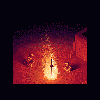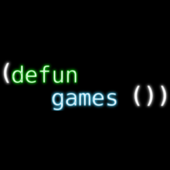I see a lot of indie games being released, with "Made with C# and LUA" in their descriptions.
I'm curious to know how viable it is to write your games from a base level of code which is then compiled.
I can't fathom how games are made without an engine. How does someone pick up C# and write games in it for those 24 hour marathons?
From recent study I think it may have something to do with "Libraries", but I still don't know how it works.
Specifically, I don't know how someone draws images to the screen, animates them, creates physics for certain "sprites" and does all of the other stuff that seems so easy in modern engines.
Are libraries used to make this process easier? Would you recommend that someone who has a primitive but solid understanding of programming use a language as opposed to someone else's engine?
I am not talking about fancy 3D games -- just the typical lightweight 2D indie games in this context.











